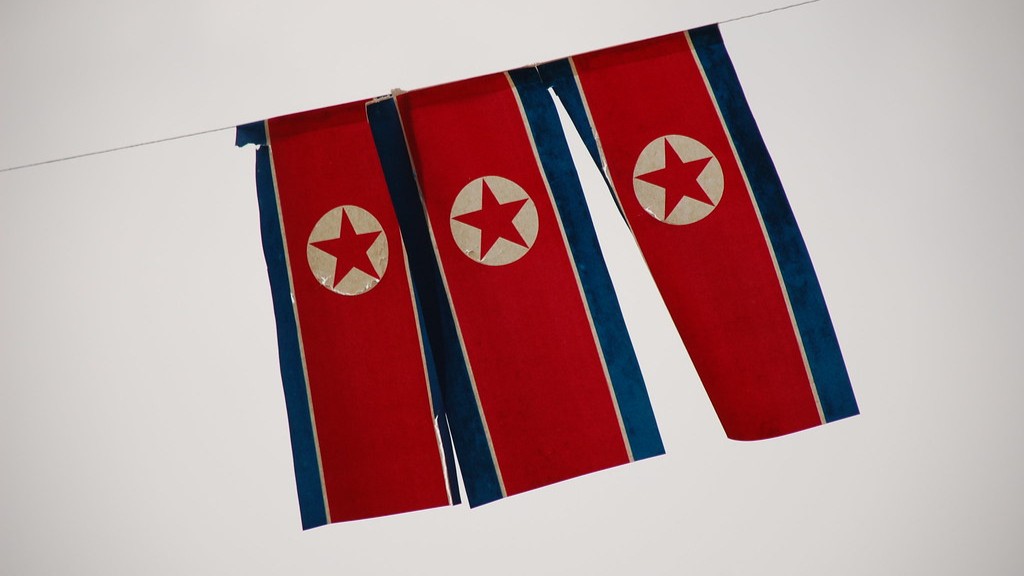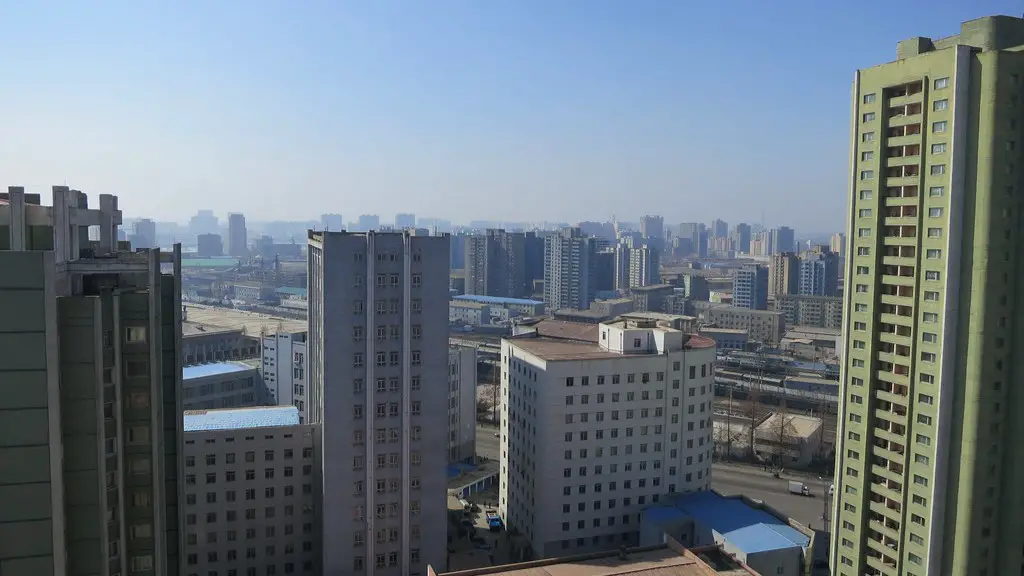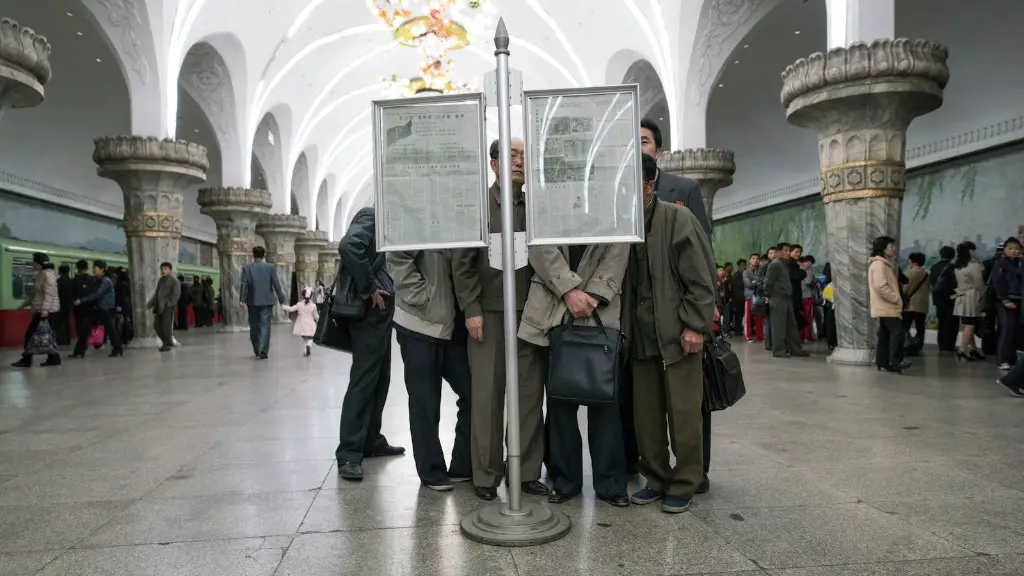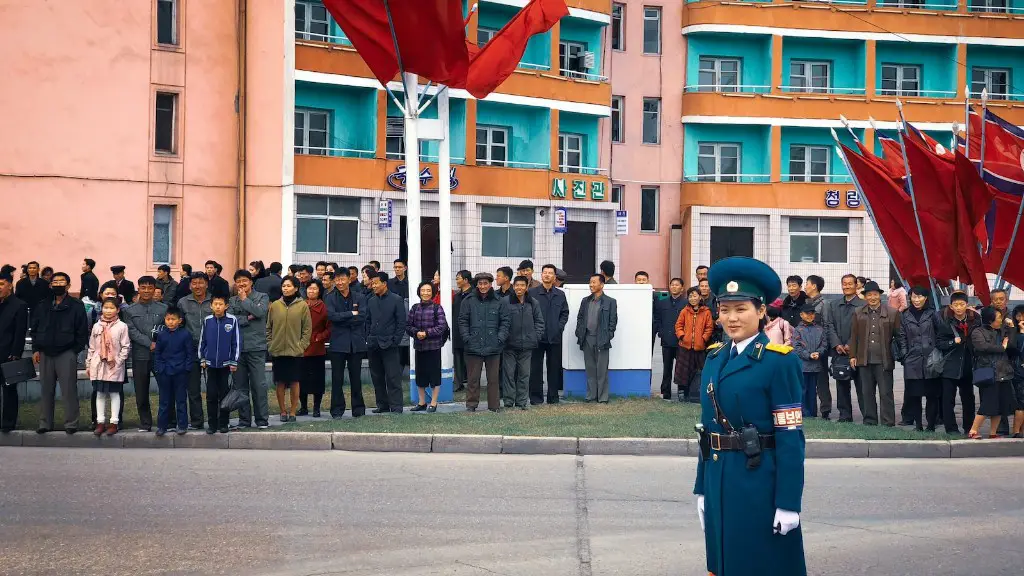North Korea is without question one of the most controversial countries in the world. For decades, the country has been under the strict totalitarian rule of the Kim family, with restrictive laws and harsh penalties meant to keep the population in line and the Kim family in power. But, in recent years, there has been speculation about whether North Korea could be on the brink of a revolt and regime change.
The groundswell of potential revolt began in 2018 with the rise of U.S. sanctions on North Korea as part of the ongoing “maximum pressure” campaign. The sanctions, led by the Trump administration, have targeted North Korea’s illicit activities, ranging from cybercrime to the export of missiles and nuclear materials. Since these sanctions have gone into effect, economic and political instability has grown, causing some to consider that the country is ripe for a revolution.
In addition to economic duress, the question of whether a revolt will happen in North Korea has grown, due in part to the emergence of a younger, more globally connected generation. Youth in North Korea are more exposed to outside cultural and social influences than ever, creating an environment in which citizens who are disillusioned with the leadership can find solidarity and potential allies who may join in an effort to challenge the status quo.
It is difficult to gauge exactly how likely a revolt is in North Korea, as the details of the situation are difficult to ascertain and information about the country is tightly controlled. However, experts in international relations suggest that a successful revolt is still unlikely. While it is true that numbers of dissenters are increasing, the same critics argue that the North Korean government remains undeterred by the growing pressure and remains in a secure, impervious position.
The fact that North Korea is one of the most isolated countries in the world makes the situation even less conducive to a revolution, as few people outside of the closed border have any meaningful contact with the population. What’s more, the country lacks access to the internet, meaning that there are very few ways to organize and collectively challenge the government.
In addition to the lack of access to outside sources, it is important to consider the loyalty of the population to the Kim family. This long-standing loyalty has been instrumental in keeping the regime in power over the years, and it is unlikely that a unified citizens’ uprising will happen without the support of drastically large numbers of people.
While North Korea’s situation is deeply concerning and distressing, it is ultimately too soon to tell whether the country will experience a revolution in the coming years. The Kim family leadership is strong, and the security apparatus is formidable. Ultimately, the people of the country will decide how the future of North Korea will play out.
Rise in Foreign Investments
Despite the tight economic sanction regime, North Korea is seeing a rise in foreign investments. While most of this investment is related to China and other countries in the region, there is also evidence that North Korea is slowly opening up to more international investment.
This investment, in conjunction with potential sanctions relief, is providing a small but steady stream of income that has the potential to improve the livelihood of many living in the country. While this investment is unlikely to have a major impact on the political situation, its presence has been a source of hope for many of the people of North Korea.
Analysts agree that this capital is important to helping North Koreans build more sustainable lives. Foreign investment has contributed to the development of durable infrastructure, improved economic opportunities, and more access to basic needs like food, water, and health services. Even if a revolution fails to happen, these measures do have the potential to improve life in the country.
Still, the overall effect is minimal until there are greater economic and political freedoms in North Korea. With the current regime in power, there is almost no possibility of an increase in economic opportunities or meaningful social reforms, which would be necessary prerequisites for a successful revolt.
Changes in Leadership
The status of the leadership in North Korea is a key factor in predicting whether a revolt might occur in the future. While the current dictator, Kim Jong-Un, is still in power, many analysts point to the recent changes in leadership as a potential sign of a more liberal, open-minded future for North Korea.
The appointment of Kim Yo-jong as the de facto leader of North Korea, for example, has been seen as a signal of change. Kim Yo-jong is far more tolerant than her predecessors, and her appointment has led many to speculate that the Kim family is considering a more open-minded approach to government and society.
The addition of officials like Choe Son-hui and Ri Yong-ho to the Politburo in 2019 is further evidence of this shift. Both Choe Son-hui and Ri Yong-ho have advocated for greater transparency in the government and a more lenient approach to citizens in the country, two changes that could have a major impact on the current unrest.
Still, to make any real change in North Korea, the Kim family will likely need to begin actually implementing some of these liberal policies, a move that could give rise to more freedom and eventual revolt by the North Korean people.
Media as a Potential Tool for Revolt
The rise of digital options such as the internet and social media have provided an invaluable tool for citizens in countries around the world to organize and rebel against oppressive regimes. The media, with its ability to spread news and opinion, can be an effective tool for those in the country looking to fight for change.
Unfortunately, access to technology remains tightly controlled in North Korea, making it difficult for citizens to even begin to organize a revolt. What’s more, the lack of a free press in the country means that there is virtually no way for citizens to get news or information on topics that are typically censored.
Still, a few small but notable developments in media have been seen in North Korea over the last several years. More citizens have been investing in cell phones, and some have found their way online through illicit means. This access, while still limited, has created an environment in which citizens can potentially work together to effect change, albeit at a very slow pace.
Given the tight control of the government, it is unlikely that media will be a major factor in a potential revolt. However, the potential for greater access to outside information is a powerful factor that cannot be discounted.
Role of the International Community
Beyond the sanctions, the international community has had a limited impact on the situation in North Korea. Few countries have any meaningful influence on the country, as the borders remain firmly closed and the relationship between nations remains cordial but distant.
Still, many have argued that the international community has a moral obligation to do more to help those living in North Korea, who have endured decades of oppressive restrictions and limited freedoms. Humanitarian aid, increased advocacy and engagement, and support for dissidents within the country are all ways that the international community can help create a more positive future for North Koreans.
In addition, dialogue between nations is also important. Diplomatic and multilateral talks have the potential to create a more peaceful and open North Korea, one with more access to foreign goods and resources, more freedoms, and more opportunities for citizens to thrive.
Ultimately, the international community can help to create the environment and conditions necessary for potential revolt in North Korea. Through increased investment, advocacy, and negotiation, the world can help to create a more sustainable environment for citizens, one in which they can build and fight for a brighter future.
Impact of the COVID-19 Pandemic
The coronavirus pandemic has only exacerbated the challenges that North Koreans face. The country has had a limited response to the virus, relying on limited resources and a heavily guarded border to protect the population.
The economic impact of the pandemic has been devastating, as the already-tattered economy has been hit hard by sanctions and the restrictions of the virus. This has led to food insecurity and poverty, challenges that have been further compounded by the ongoing leadership of the Kim family.
The pandemic has also highlighted the need for greater access to technology and the outside world. Many North Koreans have had limited information about the virus, and with no access to the internet or social media, the pandemic has been difficult to contain.
The role of the pandemic in a potential revolt is still unclear. While the virus has had a devastating impact on many citizens, it remains to be seen if it will be the catalyst for a unified resistance that so many outsiders hope will happen.





